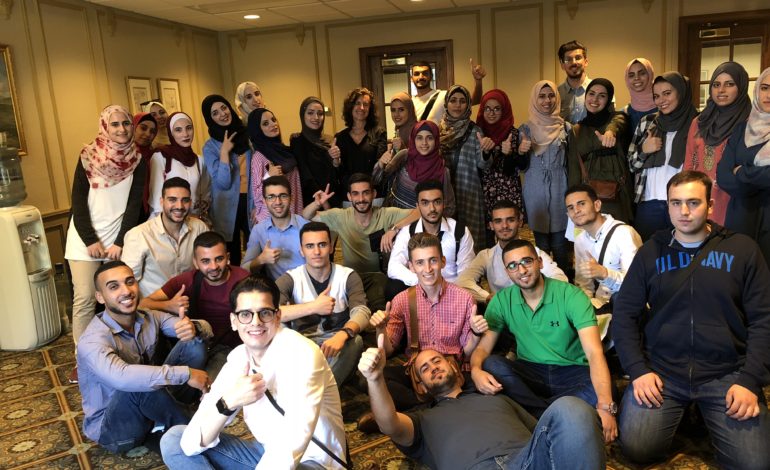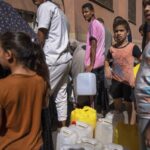Reflect on the differences between where you grew up or where you live now and where and how people live in your sub-region of concentration. Some factors to consider here are the universal and the particular, environment and culture.
Being a college student in Palestine, from a statistical lens, looks very different from being a college student in the United States. In Palestine only 11% of students attend higher education due to widespread economic barriers. Additionally, an inability to pay off loans in Palestine makes you unable to receive your degree, leaving many students poor and unemployed, due to an inability to receive their education certificate. (Palestine Chronicle) From a categorial lens, Palestinian education is similar to the US, the education received if able is well-rounded and often includes the ability to study abroad. In the past few years student activism has been an incredibly important part of Palestinian and Israeli student life in response to the conflict between Israel and Palestine. Colleges have been a safe haven for free speech in response to the conflict as while public officials often condemn these protests, colleges have defended the students participating.

However, in Israel obtaining a college degree seems statistically similar to what you would see in the United States. 46% of Israeli adults hold a college degree compared to the United States 45.7% (Forbes), making Israel one of the most educated nations in the world.

A Google search of ‘college student in Jordan’ yields results raving about the rich culture and amazing student life there. It, like Israel, is also a nation that attracts many study-abroad students from around the globe. However, it is hard to find any statistics on undergraduate education in Jordan, likely due to the mostly state-owned media system and intense red-lining in the state. (BBC) Something that may be telling is the royal family of Jordan’s decision to send their daughter, Princess Salma, to USC where she graduated in 2023. (People)
While college life appears to be similar on the surface in the Jordan Valley, the ability to attain higher education is certainly more difficult in the region. Additionally, students are not apathetic to the tensions in the region and they have a profound effect on their lives as students.
References
https://www.palestinechronicle.com/in-gaza-students-heavy-endeavors-are-going-in-vain/
https://www.jewishvirtuallibrary.org/background-and-overview-of-higher-education-in-israel
https://www.bbc.com/news/world-middle-east-14636310
https://people.com/royals/jordans-princess-salma-graduates-from-usc/


Taylor
September 17, 2023 — 8:28 pm
The differences in education between these three countries is very informing- I was never aware of the drastic differences in Palestine and Israel, which is surprising because they are neighboring regions. I was also never aware of how developed Israel is but this makes sense when thinking about how it is a US backed country, and they are large beneficiaries of US foreign aid.
Ed Webb
September 18, 2023 — 11:55 pm
Israel and Jordan have both invested quite heavily in good quality public education, particularly higher education. Jordan has sought to attract students from the West as well as wealthy Gulf states and further afield. You are right to point to the economic as well as political barriers that make it much harder to access those kinds of experiences in the Occupied Palestinian Territories.